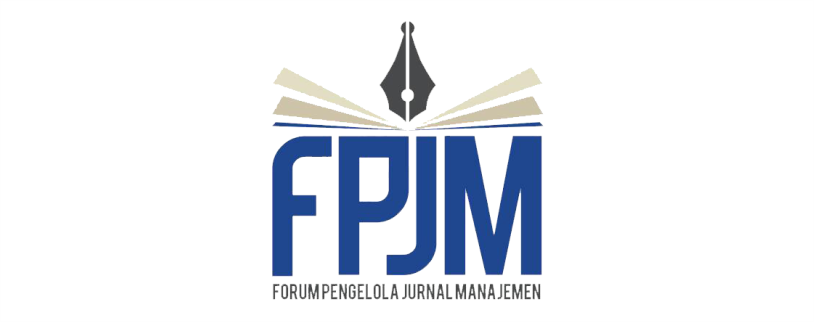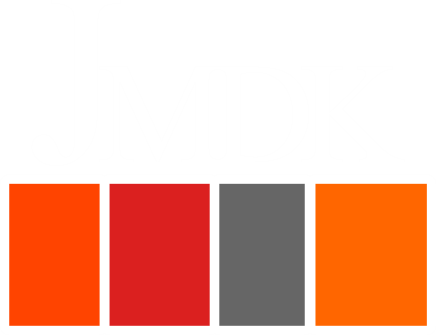Pengaruh Pelatihan dan Pengembangan Terhadap Disiplin Kerja dan Kinerja Karyawan
DOI:
https://doi.org/10.26905/jmdk.v5i1.1212Keywords:
Training and development, work discipline, performance.Abstract
Training and development of human resources is necessary for organization to improve work discipline and performance. The purpose of this study was to analyze the influence of training and human resource development to the work discipline and performance, work discipline on performance as well as to determine the affect of training and development to the performance directly and indirectly through labor discipline. Respondents in this study were 80 employees College of Agricultural Extension (STPP) in Magelang. Methods of data collection using questionnaires and analysis tools used descriptive, regression and path analysis. Results of this study showed, the training and development has an effect on the work discipline and performance as well. Training directly affects to the performance, while the development indirectly effect to the performance through work discipline.
Â
https://doi.org/10.26905/jmdk.v5i1.1212
Downloads
References
Ameeq, A. & Hanif, F. (2013), Impact of Training on Employee’s Development and Performance in Hotel Industry of Lakore Pakistan, Journal of Business Studies Quarterly, Vol.4,68-82
Asad, M. & Mahfod, H. (2015), Training and development and its impact on thr employee’s performance a study of agility Company-Kingdom, International Review of Management Business Research, Vol.4.,iss.3.,700-712
Atan, J., Raghavan, S. & Mahmood N.H.N. (2005), Impact of Training on Employees Job Performance: A Case Study of Malaysian Small Medium Enterprise, Review of Management, Vol.5, No.1/2, 40-50
Berge, Z., Verneil, M.D., Berge, N., Davis, L., & Smith, D., (2002), “ The increasing scope of training and development competency “, Brenchmarking: An International Journal, Vol.9.,Iss. 1, 43-61
Brown, G. & Read, A.R., (1984), Personnel and Training Policies-some lesson from western compnies, hLong Range Planning , Iss.17, 48-57
Chen, T.Y., Chang, P.L., & Yeh, C.W., (2004), A study off career needs, career development programs, job satisfaction and turnover intensity of R & D personnel, Career Development International, Vol.9, No.4, 424-437
Chiaburu, D.S. & Tekleab, A.G.(2005), individual and contectual influences on multiple dimensions of training effectiveness, Journal of European Industry Training, Vol.29, Iss.8.,604-626
Chien, M.H. (2004), A Study to improve organizational performance, a view from strategic human resource management, Journal American Academic Business, Vol.4, 287
Chirasha, V., (2013), Management of Discipline for good performance : a theoretical perspective, online Journal of Social Sciences Research, Vol.2.,Iss.7., 214-219
Colarelli, S.M. & Montei, M.S. (1996), Some contextual influences on training utilization, The Journal of Applied Behavioral Science, Vol.32, Iss.3, 306-322
Dessler, G. (2005), Human Resource Manajement, 10th ed., Pearson Prentice Hall, USA
Devi, V.R. & Shaik, N.(2012), Training & development-a jump starter for employee performance and organizational effectiveness, International Journal of Social Science & Interdisciplinary Research, Vol.1, Iss.7, 202
Diab, S.M.& Ajlouni, M.T., (2005), The Influence of Training on Employee’s Performance, Organizational Commitment, and Quality of Medical at Jordanian Private Hospitals, International Journal of Business and Management, Vol.10, No.2
Engelbrecht, Amos S., Johanita, S. & Louis, V.D.B. (2008), Perceived fairness of disciplinary procedure in the public service sector: an exploratory study, SA Journal of Human Resource Management, Vol.6, No.2, 1-8
Falola, H.O., Osibanjo, A.O., & Ojo, S.I., (2014), Effectiveness of training and development on employees performance and organization competitiveness in the Nigerian Banking Industry, Bulletin of the Transilvania University of Brasov.
Fenley, a., (1998), Models, styles and metaphors: understanding the management of discipline, Employee Relation, Vol.20, 353
Ghozali, L., (2011), Aplikasi analisis multivariate dengan program SPSS, Badan Penerbit Universitas Diponegoro, Semarang.
Grote, D. (2006), Discipline without punishment: the proven strategy that turns problem employees into superior performances, Amazon, American Management Association.
Guest, D.E. (2011), Human resource management and performance: still searching for some answers, Human Resource Management Journal, Vol.21, Iss., 1, 3-13
Halachmi, A. (2005), Performance measurement is only one way managing performance, Internatinal Journal Production Performance Management, Vol.54, 448-465
Hameed, A. & Waheed, A. (2011), Employee development and its affect on employee performance a conceptual framework, International Journal of Business and Social Science, Vol.2, No. 13., 224
Hanawai, Hadari, (2005), Manajemen Sumber Daya Manusia untuk bisnis yang kompetitif. Gajah Mada University Press.207-291
Harlie, M. (2012), Pengaruh disiplin kerja, motivasi dan pengembangan kerier terhadap kinerja pegawai negeri sipil pada pemerintah Kabupaten Tabalong di Tanjung Kalimantan Selatan, www. Jurnaljam.ub.ac.id/index, php/jam/article/fiewFile/473/511
Hollenbeck J.R., Derue, D.S., Guzzo, R. (2004), Bridging the gap between I/O research and HR practice: improving team composition, team training and team task design, Human Resource Management Journal, Vol. 4., 353-366
Jie, S. & Roger, D.(2006), Training and management development in Chinese multinational enterprices, Employee Relations, Vol. 28, Iss.4. 342-362
Khawaja & Nadeem (2013), Training and development program and its benefits to employee and organization: A conceptual study, European Journal of Business and Management, Vol.5.,No.2
Kreitner, R. & Kinicki, A. (2007), Organizational Behavior, 7th edition, McGrowHill Irwin, Boston.
Mangkunegara, A.P., (2013), Manajemen Sumber Daya Manusia Perusahaan, Penerbit PT Remaja Rosdakarya, Cetakan ke sebelas, Bandung.
Noe, R.A., Hollenbeck, J.R., Gerhart, B. & Wright, P.M. (2006), Human Resource Management, Gaining Competitive.
Pfeffer J., (1994), Competitive Advantage through People, Harvard Business School Press, Boston.
Rivai, Veithzal dan Basri (2005), Performance Appraisal: Sistem Yang Tepat Untuk Menilai Kinerja Karyawan dan Meningkatkan Daya Saing Perusahaan, Raja Grafindo Persada, Jakarta.
Ronald, S.R. (2006), Human Resource Development: Today and Tomorrow, Information Age Publishing Inc, USA
Rowden, R.W. & Conine Jr, C.T. (2005), The impact of workplace learning on job satisfaction in small US commercial banks, Journal of Workplace Learning, Vol.17, Iss.4., 215-230
Sims, R. (2002), Organizational Success through Effective Human Resources Management, Westport CT: Quorum Books
Soss, J., Fording, R. & Schram, S. F. (2011), The organization of discipline: from performance management to perversity and punishment, Journal of Public Administration Research and Theory, Vol.21, 203-232
Sultana, A., Irum, S., Ahmed, K., & Mehmood, N.(2012), Impact of training on employee performance; a study of telecommunication sector in Pakistan . Interdisciplinary Journal of Contemporary Research in Business, Vol.4, Iss.6.,646-551
Suwarsih, I, (2005), Hubungan Anatara Pelatihan dan Kepuasan Kerja dengan Produktivitas Kerja Karyawan Produksi PT Tirta Investama Pabrik Citeureup Bogor. Tesis. Program Pascasarjana, Universitas Muhammadiyah Prof. Dr. Hamka. Hal: 12-33
Tahir, N., Yousafzai, I.K., Jan, S., & Hashim, M.(2014), The impact of training and development on employees performance and productivity a case study of United Bank Limeted Peshawar City, KPK, Pakistan, International Journal of Academic Research in Business and Social Sciences, Vol.4, No.4, 86-98
Tjeng, E., Said, L.R., & Wandary, W. (2013), Pengaruh program pelatihan dan pengembangan terhadap kinerja karyawan pada PT Bank Central Asia Tbk (Study Pada Frontliner Bakti BCA Keu Banjarmasin), Jurnal Wawasan Manajemen, Vol.1, Nomor.3.
Tjahjono, H.K. (2005), Praktik-praktik manajemen SDM strategic: pengujian universakistik dan kontijensi dalam menjelaskan kinerja organisasional. Jurnal Bisnis dan Ekonomi Kinerja, 9(2):123-134.
Tsai P., Yen, C.Y., Huang, L.(2007), A study on motivating employees learning commitment in the post downsizing era: job satisfaction perspective, Journal of Word Business, Vol.42, 157-169
Zulaini, N.R. (2010), Pengaruh pelaksanaan pelatihan terhadap disiplin kerja karyawan pada Yayasan Kesejahteraan Pendidikan dan Perumahan, Skripsi, repository, widyatama ac.id/xmlui/ handle/123456789/2584
Downloads
Published
Issue
Section
License
Authors who publish with this journal agree to the following terms:
(1)Â Copyright of the published articles will be transferred to the journal as the publisher of the manuscripts. Therefore, the author confirms that the copyright has been managed by the journal.
(2) Publisher of Jurnal Penelitian is University of Merdeka Malang.
(3) The copyright follows Creative Commons Attribution–ShareAlike License (CC BY SA): This license allows to Share — copy and redistribute the material in any medium or format, Adapt — remix, transform, and build upon the material, for any purpose, even commercially.












